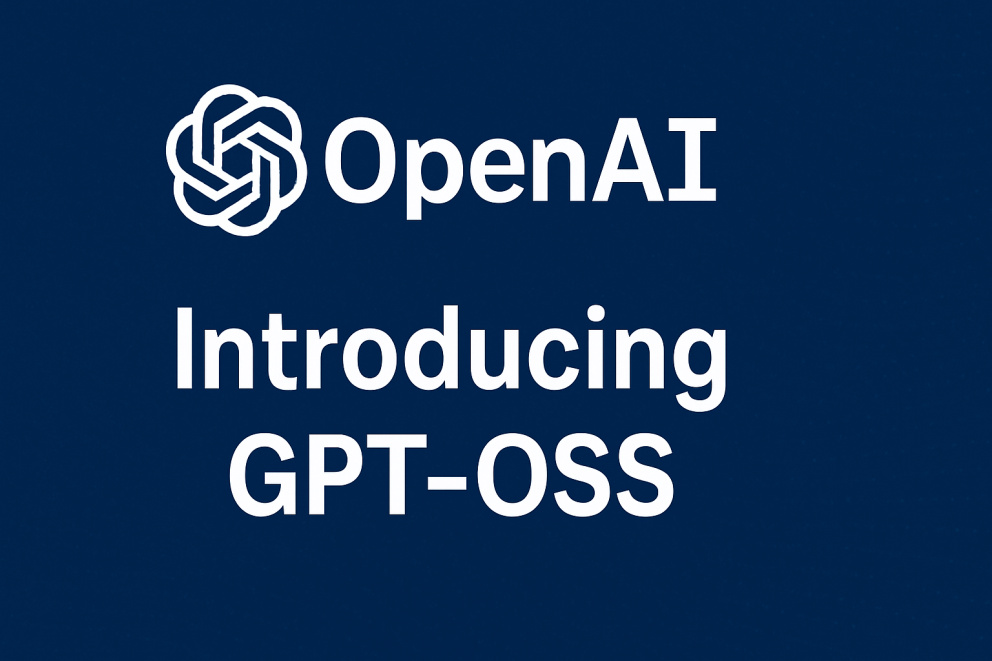OpenAI GPT‑OSS Release Brings Powerful Open‑Source AI to Everyone
OpenAI has once again made waves in the artificial
intelligence space—this time by open-sourcing a powerful new model called GPT-OSS (Open
Source Software). This move marks a significant shift in the AI landscape,
offering developers, researchers, and businesses free access to a
state-of-the-art language model that rivals some of OpenAI’s proprietary
offerings.
With GPT-OSS, OpenAI is embracing the open-source community,
enabling broader innovation while challenging competitors like Meta’s Llama
and Google’s Gemma. But what exactly does this release mean for the future of
AI?
What Is
GPT-OSS?
GPT-OSS is OpenAI’s latest open-weight large
language model (LLM), designed to provide high-performance AI capabilities
without licensing restrictions. Unlike GPT-4 Turbo, which is only accessible
via API, GPT-OSS allows users to:
✔ Download
and self-host the model.
✔ Fine-tune
and modify it for specific use cases.
✔ Integrate
freely into commercial and non-commercial projects.
This release follows growing demand for transparent,
customizable AI models that don’t lock users into proprietary ecosystems.
Key
Features:
- Performance: Early
benchmarks suggest GPT-OSS is competitive with GPT-3.5, making it one of
the strongest open-source LLMs available.
- Flexibility: Developers
can optimize the model for specialized tasks, from coding assistance to
medical diagnostics.
- Cost
Efficiency: No per-token fees—ideal for startups and researchers
with limited budgets.
Why Did
OpenAI Go Open-Source?
OpenAI has traditionally kept its most advanced models
closed, but the rise of strong open-source alternatives (like Mistral and Llama
3) has pressured the company to adapt. By releasing GPT-OSS, OpenAI:
- Strengthens
its community presence by engaging open-source developers.
- Counters
criticism over its shift toward commercialization.
- Encourages
innovation that could feed back into its proprietary models.
Potential
Use Cases
GPT-OSS unlocks new possibilities across industries:
- Startups: Build
AI-powered apps without relying on expensive APIs.
- Academia: Researchers
can experiment with model architectures and alignment techniques.
- Enterprise: Companies
can deploy customized AI solutions on-premises for data privacy.
Challenges
& Limitations
While exciting, GPT-OSS isn’t without trade-offs:
- Hardware
Demands: Running large LLMs locally requires significant GPU
resources.
- No
Cloud Scalability: Unlike OpenAI’s API, users must handle
deployment and maintenance.
- Not
Cutting-Edge: It likely lags behind GPT-4 Turbo in reasoning and
accuracy.
The
Bigger Picture: A New Era for Open-Source AI?
OpenAI’s decision signals a potential shift in AI
development—balancing proprietary advancements with community-driven growth. If
GPT-OSS gains traction, it could:
✅ Democratize AI by reducing dependency on big
tech.
✅ Accelerate innovation through collaborative
improvements.
✅ Pressure competitors (Anthropic, Google,
Meta) to open more models.
However, some skeptics argue this may just be a strategic
move to steer open-source efforts in a direction that benefits OpenAI
long-term.
Final
Thoughts
GPT-OSS is a game-changer for developers who want powerful
AI without vendor lock-in. While it may not replace premium models like GPT-4,
it provides a robust foundation for experimentation and customization.









